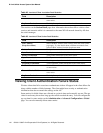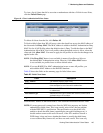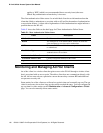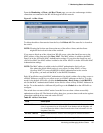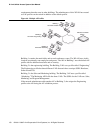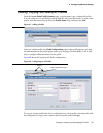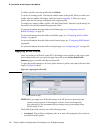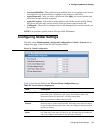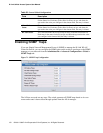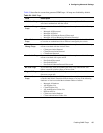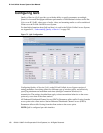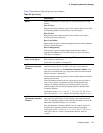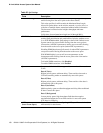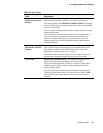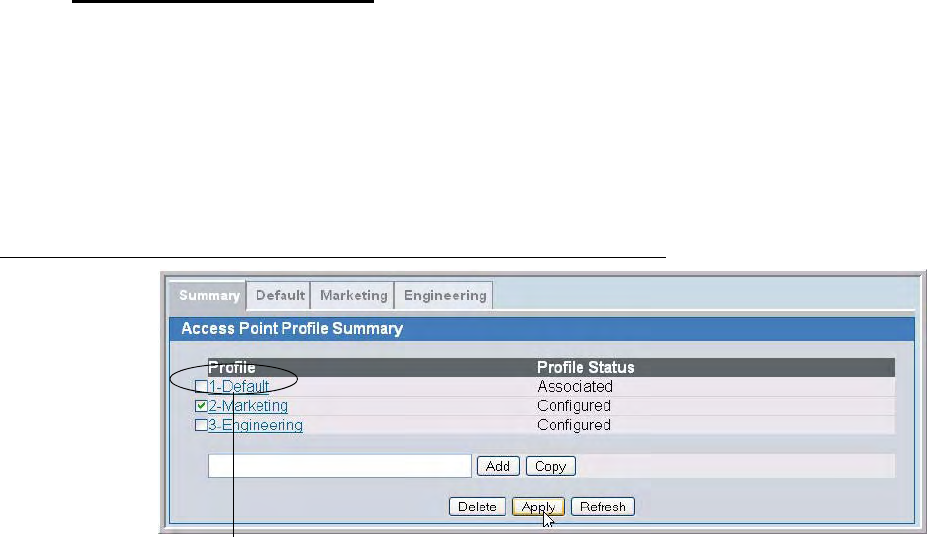
152 © 2001- 2006 D-Link Corporation/D-Link Systems, Inc. All Rights Reserved.
D-Link Unified Access System User Manual
To delete a profile, select the profile and click Delete.
To access an existing profile, click the tab with the name of the profile. When you add a new
profile, it has the default AP settings, which are listed in Appendix A. When you copy a
profile, it has the AP settings configured in the original profile.
To modify any settings within a profile, click the Global, Radio, Network or QoS settings for
the profile you select and update the appropriate fields.
For more information about the fields on the Global page, see “Configuring AAA and
RADIUS Settings” on page 79.
For more information about the fields on the Radio page, see “Configuring Wireless Radio
Settings” on page 80.
For more information about the fields on the Network page, see “Configuring SSID Settings”
on page 86.
For more information about the fields on the QoS page, see “Configuring QoS” on page 156.
Applying an AP Profile
After you update an AP Profile on the WCS, the changes are not applied to the access points
that use that profile until you explicitly apply the profile on the Access Point Profile
Summary page or reset the APs that use the profile.
To apply the profile changes to all access points that use a profile, select the profile and click
Apply, as Figure 69 shows.
Figure 69. Applying the AP Profile
NOTE:When you apply new AP Profile settings to an AP, the access point stops and
restarts system processes. If this happens, wireless clients will temporarily
lose connectivity. We recommend that you change access point settings when
WLAN traffic is low.
The Profile Status field can have one of the following values:
• Associated—The profile is configured, and one or more APs managed by the switch are
associated with this profile.
Selected Profile to Apply



